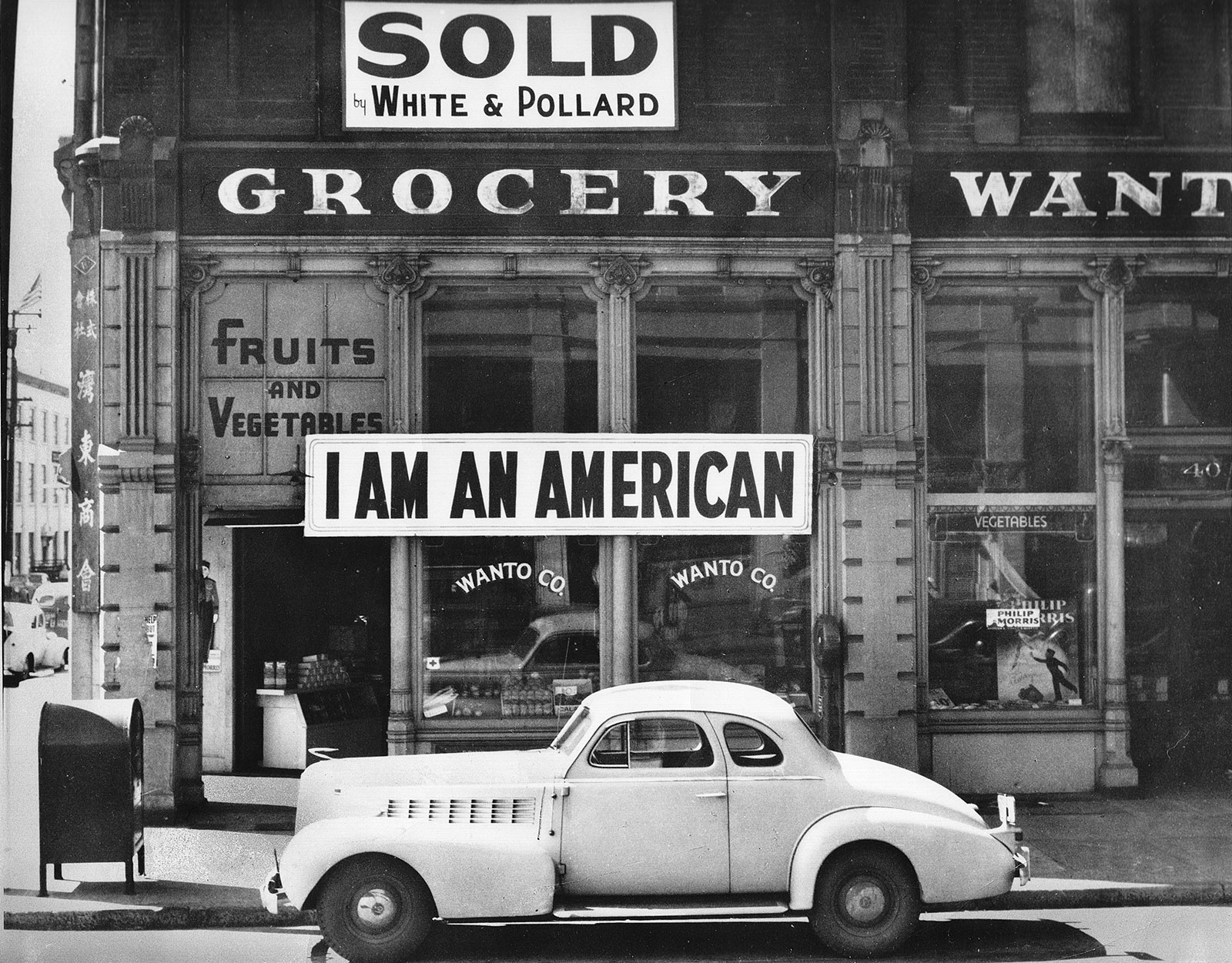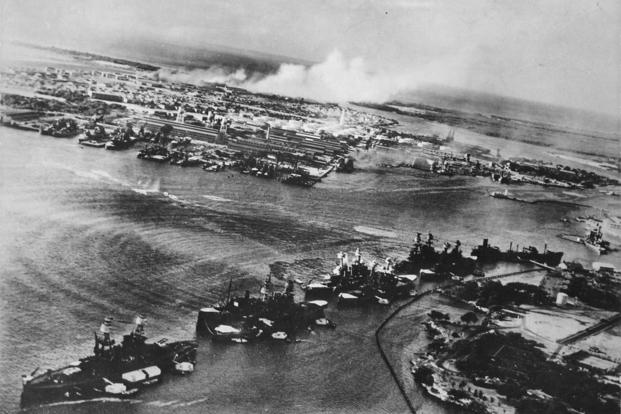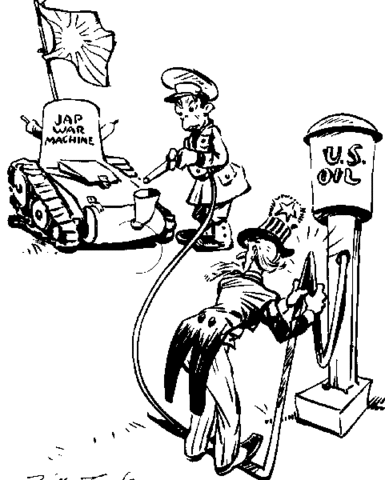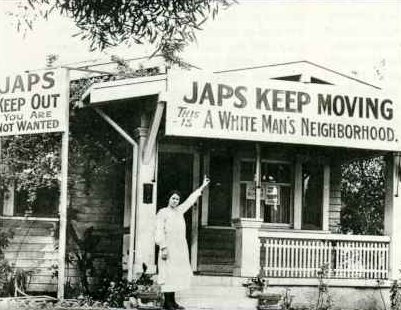
Sign on a Japanese owned store expressing loyalty.
Courtesy of Encyclopedia Britanica.
Photo Courtesy of Military.com
In 1931 Japan invaded Manchuria and expanded into China over the next decade. In 1940, Japan invaded French Indochina in an attempt to embargo all imports of war supplies to China. The U.S. then embargoed all oil exports, terminating the supply to Japan. This angered Japan since it interfered with their plans for further expansion, so they executed a surprise "preemptive" strike on the U.S. Pacific Fleet stationed at Pearl Harbor, Hawaii in an attempt to neutralize opposition.

Overview of Pearl Harbor.
Courtesy of Military.com

Uncle Sam blocking the flow of oil..
Courtesy of Quora.
"December 7, 1941, a date which will live, in infamy, the United States of America was suddenly and deliberately attacked, by naval and air forces of the Empire of Japan." -President Franklin Delano Roosevelt
The morning of December 7 was calm as a band played the National Anthem at a flag-raising. Japanese bombers suddenly roared overhead targeting "Battleship Row" and the American airfields. The attack resulted in the death of 2,403 people, the wounding of 1,143 others, and the outrage of the U.S.
The day after the attack, the U.S. declared war on Japan and the FBI immediately began arresting Issei community leaders as potential national security threats. Japanese Americans instantly became the targets of war hysteria -- suddenly suspected of being, or becoming, traitors and spies, increasing the racial barriers. Their draft status was altered to 4-C "enemy alien."
Discussions were held about how to address the "Japanese problem." There was very little public support for Japanese living in America with the exception of the Bainbridge Review, the small community newspaper on Bainbridge Island. Owner/operators, Walt and Milly Woodward, did their best to fight the prejudice against their friends and neighbors.
"These Japanese-Americans of ours haven't bombed anybody. In the past, they have given every indication of loyalty to this nation ... Let us live in this trying time that when it is all over loyal Americans can look loyal Americans in the eye with the knowledge that, together, they kept the Stars and Stripes flying high over the land of the brave and the home of the free." (Woodward: War Extra)

Sign on a Japanese owned store expressing loyalty.
Courtesy of Encyclopedia Britanica.

"Anti-Japanese sentiment
Courtesy of AsAmNews.com.